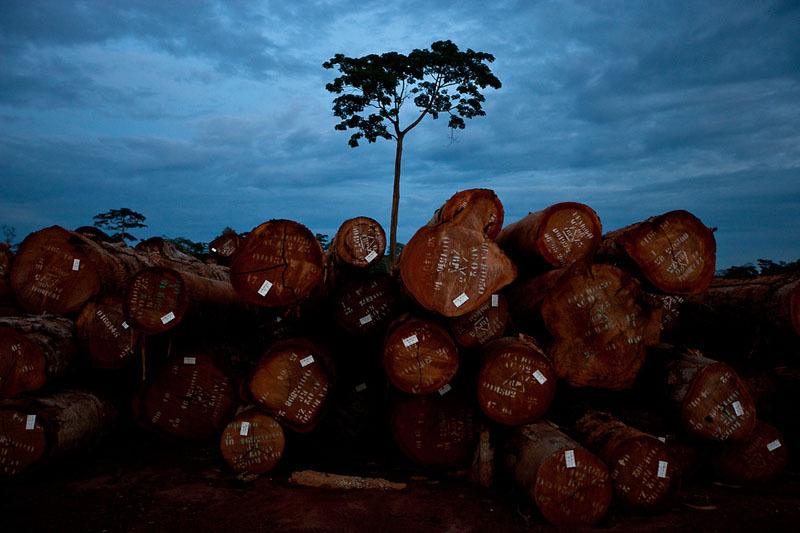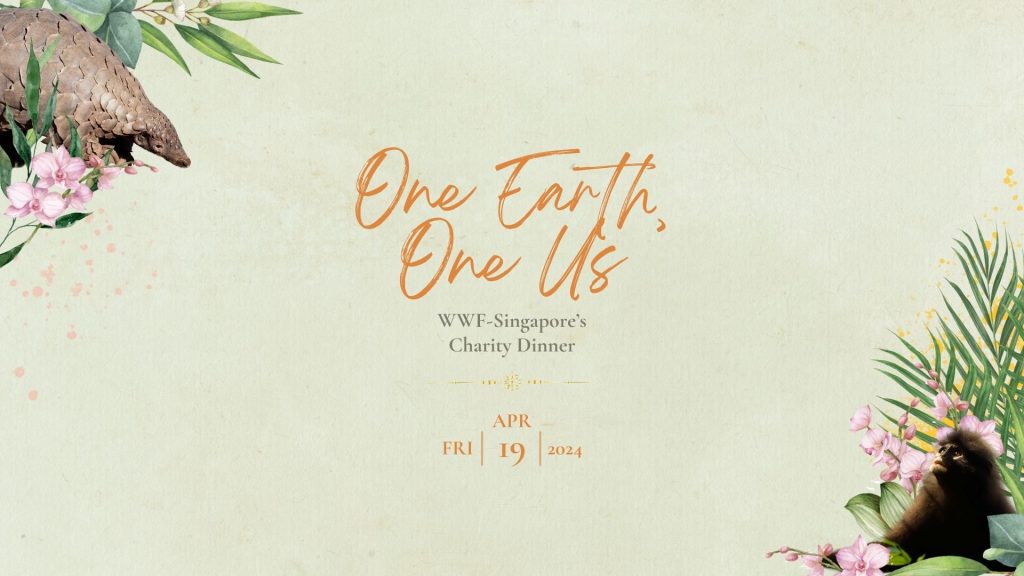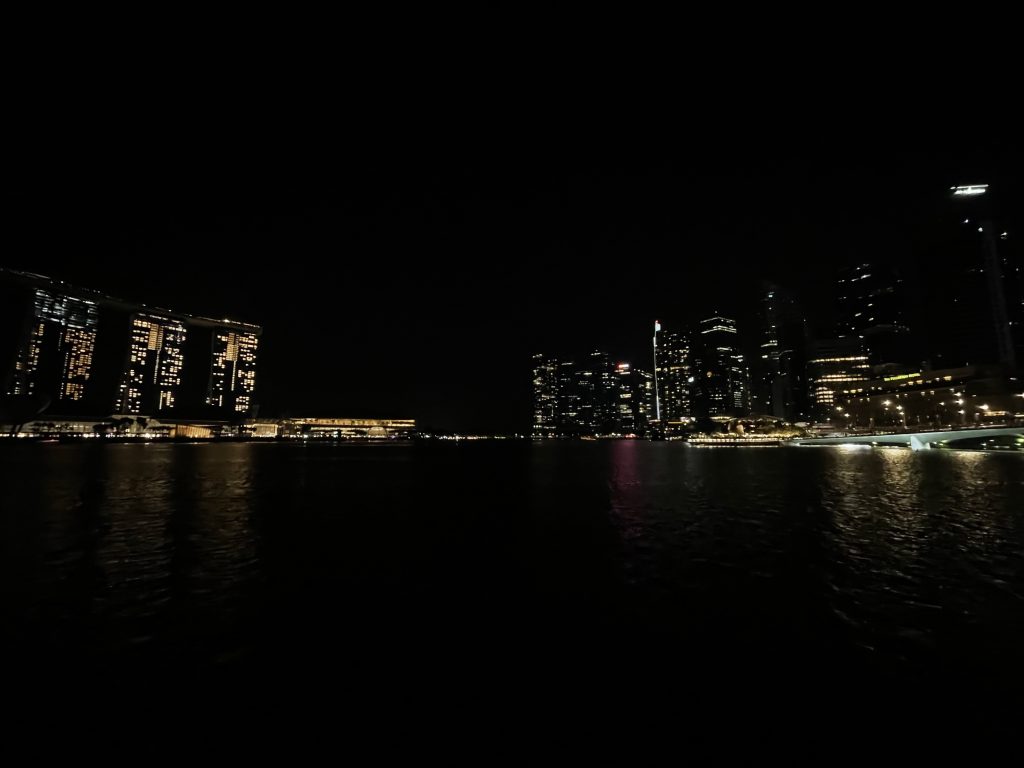Thanks to WWF and the Forest Stewardship Council (FSC), you can buy a kitchen table with a clear conscience
Freshly brewed coffee on a lazy weekend morning. Children drawing pictures or blowing out the candles on their birthday cake. Lingering over a home-cooked meal, enjoying conversation late into the night.
The kitchen table is the scene for some of the simple, innocent joys of life.
But could you enjoy them in the same way if you knew species were dying out as their rainforest home was destroyed to provide the timber for your table?
What if indigenous people were moved off their land to get at the wood your table was made from?
When you walked into your local furniture store 20 years ago, you had little way of knowing where the timber in your table came from.
Today, things are different. With the FSC label, you can buy a table – not to mention chairs, flooring, garden sheds, wallpaper, toilet tissue and much more – safe in the knowledge that you’re not threatening the countless species and people that depend on the world’s forests.
What’s at stake?
Forests are cradles of life – around four-fifths of all land species live in tropical forests. They play a vital role in regulating our climate by absorbing carbon dioxide, and help maintain our soil and water.
Forests directly support around 1.6 billion people – nearly a quarter of the world’s population. And we all rely on them for the air we breathe and the countless products they provide.
But over the last half-century, people have destroyed forests at an alarming rate. We’ve already lost around half of the world’s original forests.
The story so far
In the early 1990s, we campaigned to stop the timber industry destroying and degrading the world’s forests.
At the time, few businesses believed they were responsible for where their timber came from. Those that did claim to sell products from well-managed forests had no way of proving it.
“Businesses didn’t think the environment was their concern,” recalls Jean-Paul Jeanrenaud, who led WWF-UK’s work on forests at the time.
“We had chief executives slamming the phone down on us. I even had people threaten to punch me.”
How things have changed… In September 1991, British DIY chain B&Q committed to working with us to buy only legal, sustainable timber. By the end of that year, 16 large UK companies had committed to sourcing their timber products from well-managed forests.
That was the beginning of our Global Forest & Trade Network. Today, it’s a global partnership of some 275 retailers, producers, community groups and other organizations from across the forest industry supply chain. Members are committed to safeguarding the world’s forests and the communities, economies and ecosystems that depend on them.
But we needed a way to turn those commitments into reality. So in 1993, we helped form the Forest Stewardship Council (FSC) to certify timber and wood-based products that meet high environmental and social standards.
For a forest to be FSC certified, independent inspectors check that it meets the FSC’s strict criteria. All trees that are cut down have to be replaced or allowed to re-grow naturally, and parts of the forest are left untouched. The rights of indigenous people are respected, and local workers are employed on a decent salary. Often, companies support other social services, such as schools and clinics.
Inspectors also check every stage along the supply chain, so you can be sure that any product that bears the FSC logo is good for forests, people and wildlife.
Video: The rise of responsible forest management
Did you know?
Just 10 years ago, only 300 sq km of forest in Russia was FSC-certified. Today, it’s 260,000 sq km – a quarter of its commercial forests.
Facts and stats
- 1.4 million sq km – area of forest certified by the FSC. That’s an area more than twice the size of France.
- 81 – number of countries with FSC-certified forests.
- 40% – forest area of Europe and North America certified by the FSC.
- US$73bn – annual sales of forest-based products by members of our Global Forest & Trade Network
What next?
Almost a tenth of forest products traded now meet FSC standards. That’s a phenomenal rate of growth – but it means nine-tenths of products are still uncertified.
We believe some areas of forest need to be protected from any commercial logging. But we’re supporting responsible forestry alongside protected areas to help conserve the world’s most important forests:
- In the Congo Basin, the largest area of tropical forest after the Amazon, 45,000 sq km is now FSC certified – and we’re working with everyone from heads of state on down to increase this. As well as protecting important habitats for elephants, great apes and many other species, sustainable forestry is improving livelihoods for some of the poorest people on the planet.
- In Borneo, we’re working to conserve and restore the “Heart of Borneo,” a 220,000 sq km area of the island’s species-rich rainforest. Responsible forestry is a vital aspect of this: some 20,000 sq km is already FSC certified or in the process of certification. By 2020, we want the entire Heart of Borneo area to be protected or managed sustainably.
- In the western Mediterranean, people have sustainably harvested cork for centuries. Cork oak forests provide a haven for rare plants, birds and other wildlife, including the Iberian lynx, the world’s most endangered wild cat. We’re promoting FSC certification to keep sustainable cork harvesting economically viable and help protect this unique landscape.
What you can do
You can help secure a future for the world’s forests, and the people and animals that depend upon them next time you buy a table – or any other wood-based product.
Only buy products with the FSC label – it’s the only credible certification scheme.
If you don’t see the logo, ask the store or manufacturer why not. Make sure they realize that you as a customer want to know that the products you buy don’t destroy forests. This message will swiftly get back to their suppliers.















